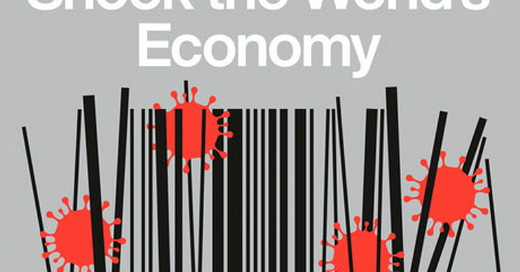Dear friends,
Thank you for reading the Chartbook Newsletter.
Over the last 8 months I’ve managed to put together 26 issues of Chartbook and I have an itch to do more. The audience response has convinced me that I am not just talking to myself. I’m really grateful for all the positive feedback and the serious-minded engagement.
For me the newsletter is freeing. It’s a space to write about things I wouldn’t write about elsewhere. It’s a space to write in ways I don’t in other places.
I’m committed to the format, but it is also seriously time-consuming. 40 newsletters a year, at c. 3000 words each is 120,000 words. Along with books I’m writing - my climate political economy manuscript is due February 2023 - and regular journalism, I have to take that volume of work seriously.
To see where Chartbook should fit in my portfolio of other activities, as of this week, I am transitioning to a paid subscriber model.
Don’t panic. If you like the newsletter but can’t afford a paid subscription, or read the newsletter in a professional setting in which it is not appropriate to be paying a subscription, e.g. public service, NGO etc, I get it. You don’t have to do anything. You will continue to receive Chartbook, as before.
But, if you can afford it, if you are enjoying the content, if you would like to support the mission and you would like to buy me the equivalent of a cup of coffee every month, there are three options:
The annual subscription: $50
The standard monthly subscription: $5 monthly - which gives you a bit more flexibility.
Founders club: If you really love Chartbook Newsletter, or read it in a professional setting in which you regularly pay for subscriptions, data services or consultancy, please consider the option of signing up for the Founders Club with a recommended contribution of $120 annually, or another amount at your discretion. Good karma guaranteed.
To show your support for the mission, hit the button here:
What are you signing up for? The Chartbook Newsletter as you already know it.
It will not be metronomic, but it will be pretty regular. I am aiming for about 40 or so posts per year - 3-4 per month, depending on the press of other commitments. The writing will be relatively informal and sometimes a little associative. One of the things I like about writing the newsletter is the chance to let my mind wander a bit.
I don’t promise that the copy-editing will be immaculate. This stuff is straight out of the kitchen. It’s all about the chance to think out loud about the issues.
What to expect for the coming months?
For me the big news of the fall is the release of Shutdown on September 7th.
I’m going to be using the newsletter to frame Shutdown, reflecting on how the book was written, decisions that were made in putting it together and exploring angles that emerge from debate.
In addition to Shutdown, I’m lining up posts on:
Key issues from the “Crashed universe” such as US China policy, the progress of the Eurozone, US Treasury market reform debate
European climate politics and the myth of the Gilets Jaunes
The World Bank’s first ever report on China in 1983
Why Hitler’s Germany turned down Bretton Woods
The economy legacy of state-building in Afghanistan
The economic crisis in war-torn Syria
Running commentary on the various net zero by 2050 trajectories
The PBOC: the most important central bank we don’t know much about.
How did deflation and inflation contribute to the rise of Hitler?
The 1990s Euro debate.
How the Treaty of Versailles gave birth to GDP statistics in Weimar Germany
Bitcoin and digital central bank currency.
Albert Speer’s telephone book and what it tells us about German business.
The twenty-first century gold rush in the Sahel
Curzio Malaparte and the Eastern front: the anti Grossman?
The interwar agrarian crisis as prelude to the Cold War
Thoughts about uneven and combined development and a pluralist view of capitalism
A series of posts on pandemics, 2020 and the state we are in, to accompany the release of Shutdown in the fall.
I look forward to sharing many more posts with you. It will be fun!
Thank you again for your attention.
Once again, if you would like to support the Chartbook project, klick here.
Adam





It is an honor to support Adam's insightful essays, which are not redundant with other sources. Keep up the great work!
go adam go!